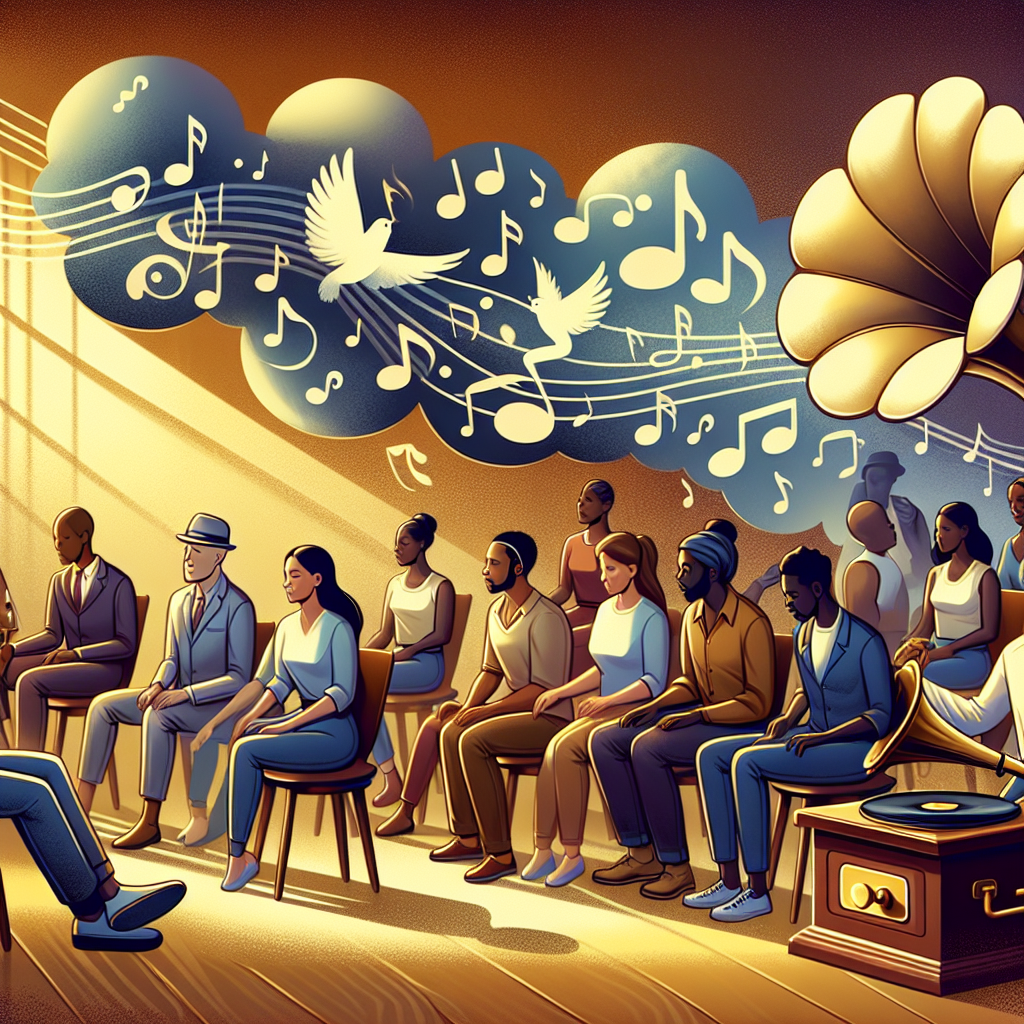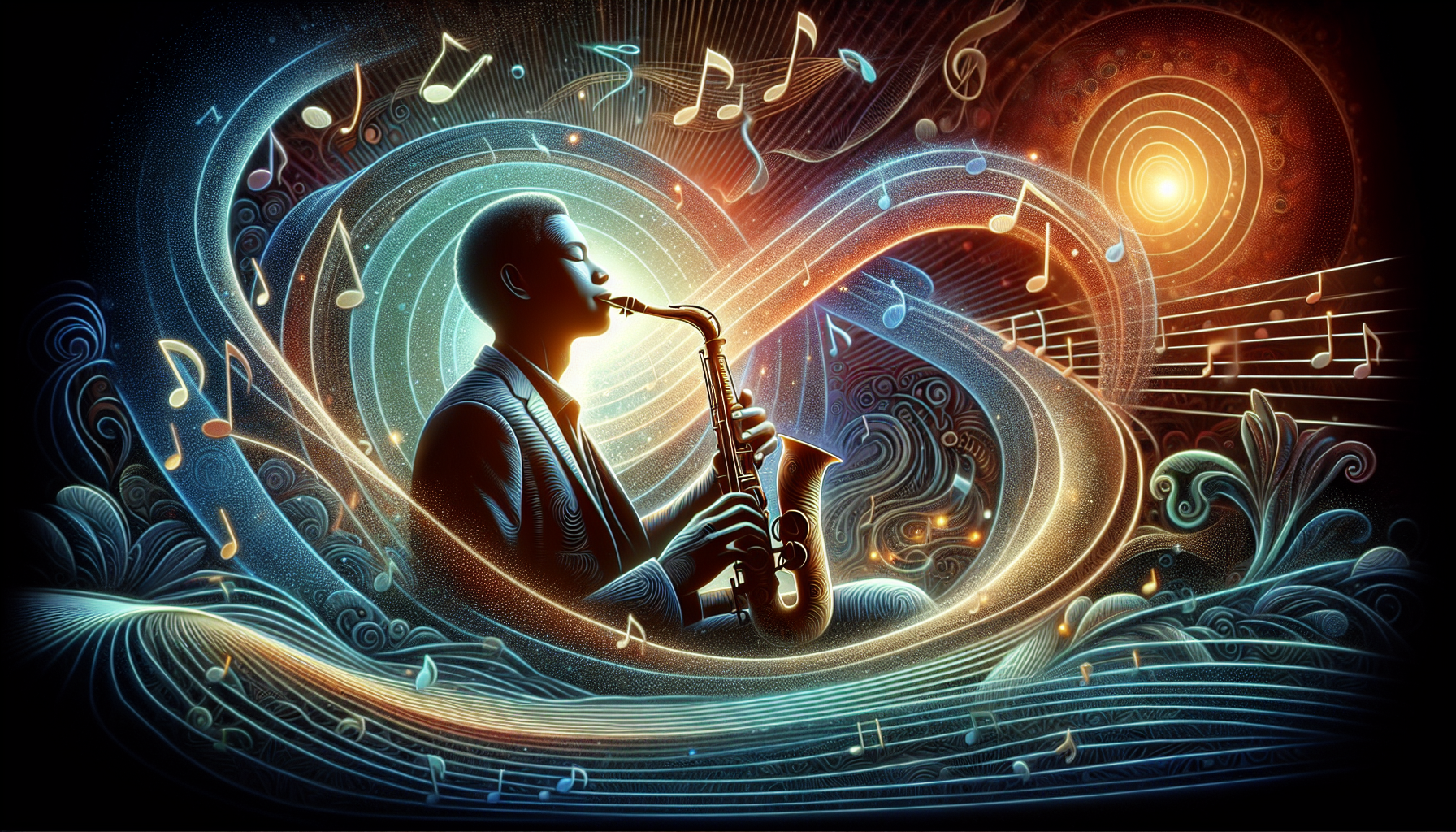The Therapeutic Effects of Jazz on Mental Health

Discover the transformative power of jazz on mental health. Explore how this soulful music genre can soothe your mind, reduce stress, and elevate your mood. Learn more about the therapeutic effects of jazz by visiting Vibrant Vitality today. Don’t miss out on unlocking a more vibrant, healthier you!
Exploring the Impact of Jazz Music on Reducing Anxiety and Stress Levels
The Therapeutic Effects of Jazz on Mental Health
In the realm of music therapy, jazz has emerged as a powerful tool for alleviating mental health issues, particularly anxiety and stress. This genre, known for its complex rhythms, improvisation, and dynamic harmonies, offers more than just auditory pleasure. It serves as a conduit for emotional expression and psychological healing, making it an invaluable resource for those seeking solace in sound. The exploration of jazz music’s impact on reducing anxiety and stress levels reveals a fascinating intersection between art and science, where melodies and mental health intertwine to foster well-being.
Jazz music, with its rich history and diverse styles, provides a unique listening experience that can significantly influence one’s emotional state. Its improvisational nature, a hallmark of the genre, encourages a sense of spontaneity and freedom, allowing listeners to experience a range of emotions and, in many cases, facilitating a therapeutic release. This improvisation also mirrors the unpredictability of life, teaching listeners to embrace uncertainty and find comfort in the unknown. As such, jazz can act as a musical metaphor for navigating life’s challenges, promoting resilience and adaptability in the face of stress and anxiety.
Moreover, the complex rhythms and syncopations characteristic of jazz engage the brain in ways that can lead to profound relaxation and stress relief. The act of listening to or engaging with jazz music can trigger the release of neurotransmitters such as dopamine, known as the “feel-good” hormone, which plays a crucial role in the brain’s reward system. This biochemical response not only enhances mood but also reduces stress, creating a sense of calm and well-being. Additionally, the intricate melodies and harmonies of jazz can captivate the listener’s attention, providing a distraction from anxious thoughts and allowing for a mental break from stressors.
The therapeutic effects of jazz extend beyond mere biochemical reactions, however. Engaging with jazz music, whether through listening, playing an instrument, or even attending live performances, fosters a sense of connection and community. For individuals struggling with anxiety and stress, this sense of belonging can be incredibly healing. Jazz, often performed in intimate settings that encourage interaction between musicians and audiences, creates a shared experience that can alleviate feelings of isolation and loneliness, further contributing to its therapeutic potential.
Furthermore, the practice of playing jazz music offers additional mental health benefits. The improvisational aspect of jazz encourages creative expression, allowing musicians to channel their emotions through their instruments. This form of emotional release can be particularly therapeutic for individuals dealing with anxiety and stress, providing an outlet for expressing feelings that may be difficult to articulate verbally. Additionally, the discipline and focus required to master a jazz instrument can enhance cognitive function and reduce anxiety by promoting mindfulness and present-moment awareness.
In conclusion, the therapeutic effects of jazz on mental health are multifaceted, encompassing emotional, biochemical, and cognitive dimensions. By offering a unique blend of improvisation, complex rhythms, and communal experiences, jazz music stands out as a potent tool for reducing anxiety and stress levels. Whether through listening, playing, or participating in live performances, engaging with jazz can provide a sense of relief, connection, and emotional well-being, underscoring the genre’s significant role in the field of music therapy. As we continue to explore the impact of music on mental health, jazz undoubtedly remains a key player in the symphony of therapeutic sounds.
The Role of Jazz in Enhancing Mood and Emotional Well-being

Jazz, a genre of music that originated in the African-American communities of New Orleans in the late 19th and early 20th centuries, has long been celebrated for its rich cultural heritage and artistic innovation. However, beyond its musical appeal and historical significance, jazz possesses therapeutic qualities that can significantly enhance mental health and emotional well-being. This article delves into the role of jazz in uplifting mood and fostering a positive mental state, exploring how this genre serves as more than just entertainment but as a form of emotional healing and support.
The therapeutic effects of jazz on mental health can be attributed to its unique musical structure, which often includes improvisation, syncopation, and swing notes. These elements create a complex auditory experience that can stimulate the brain, promoting relaxation and reducing stress. Listening to jazz has been shown to lower blood pressure, decrease heart rates, and reduce levels of cortisol, a hormone associated with stress, thereby offering a natural remedy for anxiety and tension. This calming effect is not only beneficial for individuals seeking a moment of peace in their hectic lives but also for those dealing with chronic stress and anxiety disorders.
Moreover, jazz’s improvisational nature can have a profound impact on emotional expression and processing. The spontaneous creation of music allows for the expression of emotions that might be difficult to articulate in words. For listeners, the experience of hearing these emotions conveyed through music can provide comfort and a sense of connection, knowing that their feelings are shared and understood. This emotional resonance can foster a therapeutic environment, where individuals feel supported in exploring and addressing their emotional states.
Additionally, engaging with jazz, whether through listening or playing an instrument, can enhance cognitive function and emotional intelligence. The complexity of jazz music challenges the brain, encouraging active listening and concentration. This engagement can improve cognitive skills such as memory, attention, and problem-solving. Furthermore, understanding and appreciating the emotional nuances of jazz can deepen one’s emotional awareness and empathy, skills that are crucial for personal development and social interactions.
The social aspect of jazz should not be overlooked when considering its therapeutic benefits. Jazz often brings people together, whether in concerts, clubs, or community events, fostering a sense of belonging and shared experience. For individuals struggling with loneliness or social isolation, these communal experiences can provide a sense of connection and support, contributing to an overall improvement in mental health.
In conclusion, the role of jazz in enhancing mood and emotional well-being is multifaceted, offering benefits that range from stress reduction and emotional expression to cognitive enhancement and social connection. Its rich, complex, and expressive nature makes jazz not only a source of entertainment but also a powerful tool for mental health and emotional healing. As we continue to explore the therapeutic potential of music, jazz stands out as a genre that can touch the soul, lift the spirits, and foster a healthier, more emotionally balanced life.
Jazz as a Tool for Mindfulness and Its Effects on Mental Health Recovery
Jazz, a genre of music that originated in the African-American communities of New Orleans in the late 19th and early 20th centuries, has long been celebrated for its rich cultural heritage and artistic complexity. However, beyond its musical appeal, jazz has also been recognized for its therapeutic effects on mental health. This article explores how jazz serves as a powerful tool for mindfulness and plays a significant role in mental health recovery.
The intricate melodies and rhythms of jazz music have a unique way of capturing the listener’s attention, drawing them into the present moment. This immersive experience is akin to mindfulness, a practice where individuals focus their attention on the present moment, acknowledging and accepting their feelings, thoughts, and bodily sensations. Engaging with jazz music, whether through active listening or playing an instrument, can facilitate a state of mindfulness, allowing individuals to step away from their worries and stressors, and instead, immerse themselves in the joy of the music.
Moreover, the improvisational nature of jazz is particularly conducive to mindfulness. Jazz musicians often play without strict adherence to sheet music, instead improvising based on the tune’s structure and their emotions. This spontaneity can encourage listeners to let go of their preconceived notions and expectations, fostering a more open and receptive state of mind. For individuals struggling with mental health issues, such as anxiety or depression, this can be incredibly liberating, offering a respite from the relentless cycle of negative thoughts and worries.
The benefits of engaging with jazz extend beyond the moments of listening or playing. Research has shown that music therapy, including jazz, can have long-lasting effects on mental health recovery. For instance, listening to jazz has been associated with reduced levels of stress and anxiety, as the music can help regulate emotions and soothe the nervous system. The rhythmic patterns and harmonies in jazz can also stimulate the brain, promoting cognitive function and emotional well-being.
Furthermore, participating in jazz music, whether by playing an instrument or singing, can enhance self-expression and creativity. For individuals dealing with mental health challenges, these forms of expression can be particularly therapeutic. They offer a non-verbal means of communicating feelings and experiences that might be difficult to articulate, thereby aiding in the processing of emotions and contributing to a sense of personal achievement and self-worth.
The communal aspect of jazz also plays a crucial role in its therapeutic effects. Jazz is inherently social, often involving collaboration and communication between musicians. For listeners and players alike, this sense of community can be incredibly supportive, providing a sense of belonging and connection that is vital for mental health recovery. Engaging with jazz, whether attending live performances or participating in jam sessions, can help alleviate feelings of isolation and loneliness, reinforcing the social bonds that are essential for emotional resilience.
In conclusion, jazz is much more than a musical genre; it is a powerful tool for mindfulness and mental health recovery. Its complex melodies, improvisational nature, and communal spirit offer a unique blend of cognitive stimulation, emotional regulation, and social support. By drawing individuals into the present moment and providing a means for expression and connection, jazz music holds the potential to significantly enhance mental health and well-being. As we continue to explore the therapeutic benefits of music, jazz undoubtedly plays a harmonious note in the symphony of mental health recovery strategies.